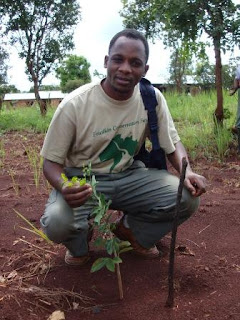
“Sandals Resorts International has a long-standing history of implementing environmentally-friendly practices throughout its properties. It was important to align with a certification company whose passion for protecting the Caribbean’s unique and delicate eco-system matched our own,” explained Richard May, Group Director of Environmental Affairs. “We are pleased to have found that partner in Earthcheck.”

The partnership further adds yet another level to SRI’s commitment to sustainable tourism. In 1998, Sandals Negril Beach Resort & Spa was the very first all-inclusive resort to earn the Green Globe Certification. Sandals Resorts successfully modified its water systems and energy requirements, adjusted its waste management program and bolstered its already-strong social involvements within the community to earn the important certification.
Within three years, the remaining 13 Sandals Resorts and four Beaches Resorts all earned the venerable award. In 2008, Sandals Negril achieved the highest possible level of certification (Platinum), becoming the first and only hotel in the world to do so. Since implementing sustainability practices, average resource savings achieved by SRI amount to 40 percent (water), 55 to 60 percent (waste) and 40 percent (energy).
The announcement of the partnership arrives in tandem with the one-year anniversary of the The Sandals Foundation, the philanthropic arm of Sandals Resorts International. The Foundation represents nearly three decades of corporate philanthropy focused on action-based sustainable development in areas of education, environment and community.
SRI employees are also encouraged to act in accordance with sustainability policies. Employees receive daily reminders in shift meetings, training courses and environmental awareness sessions. Notice boards and competitions also play a significant role in the changing of attitudes and along with field trips and monthly awards, helps to maintain exposure.
But is the company’s commitment to sustainable practices making any impact upon consumer behavior? Again, Richard May comments; “Many hotels operate in the Caribbean, but we are the Caribbean, fiercely protecting the islands we call home. Over the years, our guests have taken notice. Current programs that allow guests to engage in clean-up activities or community work actually resulted from an increased demand from our guests. These experiences have prompted guests to return year after year with suitcases filled with toys, books and medical supplies for donation to area schools and hospitals.”
“Many of our suppliers and business partners have also developed internal sustainability and environmental policies as a result of our requests for change,” explains May. “They have adopted environmentally enhanced operating processes and those suppliers who have shown an extended resistance to change or fail to consider this new approach are no longer on our list as preferred suppliers.”
With the protection of the environment an important cause for many, SRI has also seen many conference organizers and planners place an increased emphasis on eco-friendly practices. Some – such as Nestle – will no longer book events with conference venues that cannot supply sustainability policies and assist them in staging carbon proceedings.
EarthCheck science has provided SRI with the framework for sustainable operations and the company focuses on expanding its programs to the proverbial next level via the reaches of The Sandals Foundation with its focus on education, environment, and community.
In this manner, SRI is creating a positive ripple upon host communities in the hope that by influencing future generations at a formative stage in their lives, the habits and cultural norms they adopt will imbed sustainability in their very DNA.
EDITOR'S NOTES
Sandals Resorts has earned a worldwide reputation for providing two people in love with the most romantic vacation experience in the Caribbean. Currently, there are 14 Luxury Included® Sandals Resorts located in Jamaica, Antigua, St. Lucia and The Bahamas. Each offers stunning beachfront locations; a choice of à la carte restaurants, from white-glove dining to barefoot elegance; all premium brand wine and spirits, including an exclusive partnership with California's legendary Beringer Vineyards; luxurious accommodations in a range of categories; unrivalled watersports including the Caribbean's largest PADI certification program; Butler Service for truly indulgent pampering; Sandals Weddings by Martha StewartTM; and signature Red Lane® Spas, with services and treatments inspired by the region. In February 2010, Sandals Emerald Bay, Great Exuma, Bahamas made its debut, offering 183 all-butler service rooms and suites, an 18-hole championship Greg Norman-designed golf course and 150 slip marina.
Sandals Resorts has set the industry standard for the Luxury Included® vacation and has been voted the Caribbean’s Leading Hotel Brand at the World Travel Awards for 16 years in a row, and World's Leading All-Inclusive Company for 14 years in a row. For more information, call your local travel agent or 1-800-Sandals (1-800-726-3257) or visit www.sandals.com.
EC3 Global is the world's largest certifier of sustainable travel and tourism operators. With more than 1000 clients in over 60 countries, the company’s EarthCheck Program responds directly to the major environmental problems facing the planet, including climate change, waste reduction and non-renewable resource management. It provides benchmarking, certification and performance improvement systems that result in average savings of 30 per cent for energy and waste stream, and 20 per cent savings for water consumption. Go to www.earthcheck.org www.earthcheck.org or www.ec3global.com





